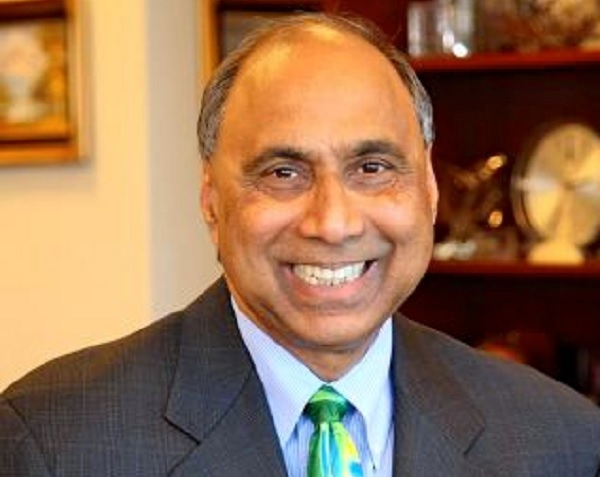Frank F. Islam Remarks at India Republic Day Event Hosted by NCAIA
Thank you for that kind introduction. Thank you for your warm welcome. I want to express my deep gratitude to Dr. Banik for inviting me to speak on this special occasion. Let me extend my warmest Republic Day greetings to all of you.
On this occasion of Republic day, I wish all of you and India a wonderful, prosperous, and peaceful 2018 and one Nation under God. As one Nation under God, India will be a land of big dreams, small treasures, brave people, kind deeds, and tender mercies. We can do this not by looking to the heavens and to the Gods whom we worship. But by looking at the earth and the people and the family that we are.
Le me now get back to my speech.
I have spoken to NCAIA gatherings and other audiences to celebrate India’s Republic and Independence Days on several occasions. I must state unequivocally, however, that I have never given a more important speech on any of those days than the one that I will deliver this evening.
That is so because of my topic which is women’s empowerment. Or, as I have titled my remarks: Women’s Empowerment: The Need for Silence Breaking and Interdependence.
Let me begin by talking about the need for silence-breaking.
Time magazine this year named the women who disclosed the sexual harassment that had been committed against them by the rich and powerful as its persons of the year for 2017. Time labeled these women the silence breakers.
They came out of the shadows to call attention to a form of harassment that should never have been tolerated but it was. They were engaged in silence breaking.
Because of the status of Indian women today, there is a critical need for silence breaking. This silence breaking should not be about sexual harassment but about an invisible socio-economic system of barriers, obstacles and limitations that prevents Indian women from learning, advancing and achieving their full potential. This is true especially in terms of business ownership and entrepreneurship.
Various studies have shown that Indian women entrepreneurs are among the most disadvantaged in the world. They are under paid, undervalued, and exploited. In spite of an increase of women business owners and operators over the past several years, entrepreneurship still remains a male bastion.
A recent study by the National Sample Survey Organization found that only 14% of Indian business establishments are run by females. The same study disclosed that most of the women-run businesses get very little support from financial institutions with about 79% being self-financed.
These are bothersome findings. Even more bothersome is what is discovered when the status of Indian women entrepreneurs is compared to that of woman entrepreneurs around the world.
In 2015, The Global Entrepreneurship and Development Institute (GEDI) issued a report containing its Female Entrepreneurship Index ranking countries “with respect to the conditions present that will fuel high potential female entrepreneurship development.” India was near the bottom on that Index – ranking 70th out of 77 countries.
In 2017, MasterCard issued its Index of Women Entrepreneurs ranking countries based on an assessment of: Women’s Advancement Outcomes; Knowledge Assets and Financial Access; and Supporting Entrepreneurial Conditions. India ranked 49th out of 54 countries on the MasterCard Index.
The MasterCard report reinforced the dismal findings of the other studies. But, that report offered a glimmer of hope by observing “… there is significant potential to harness the untapped potential of Indian women’s entrepreneurship.”
I firmly believe that we can harness that “untapped potential” by working together to move Indian women to a state of interdependence.
I will devote the rest of my time to talking about what we, and what you can do to help create that state of interdependence.
In my opinion, there is an empowerment continuum with three points on it:
- Dependence in which a woman has no power or control over her life or outcomes
- Independence which is the mid-point where a woman has developed the necessary knowledge, skills, abilities and attitudes to be liberated and self-actualizing
- And, interdependence where a woman is empowered to sit in full equality with men to influence and make decisions and establish directions for a family, a business, a community, a region, or a nation.
How do we collaborate to help create a state of interdependence for Indian women? I recommend doing it by applying a 3-E formula: Those E’s are education; enlightenment; and entrepreneurship.
These E’s are intertwined. But, the empowerment of women and movement toward a state of interdependence must begin with education – especially for those from the weaker sections.
The 2011 census showed that the literacy rate in India was just over 74%. The rate for males was slightly above 82% and the rate for females was only 65.46%. That is not good news in terms of having a sound universal platform for the empowerment of women.
In education, literacy is the starting line and higher education is the finish line for becoming fully empowered. These statistics indicate that not enough women even get to the starting line and very few get to the finish line.
This must change. Women must be able to participate along the entire educational continuum. This participation is pivotal for the future of a country.
For the individual woman, education itself is empowering. It removes the shackles of ignorance. It builds self-esteem and confidence. A good education is the key to opportunity and a bridge to the future. It is a powerful equalizer to lift women out of poverty.
For the family, education prepares the woman to be a change agent. Too many families especially families from the socially and economically disadvantaged sections are trapped in poverty because of a lack of education. With her own education, the woman can educate and equip her children to escape that trap.
For India, education delivers on the promise of the largest representative democracy in the world. Central to that promise are equality, opportunity and inclusive economic mobility. Education levels the playing field and makes that promise a reality.
We as Indian Americans with a love for our motherland and our own mothers have an obligation to reach out to assist the public and private sectors in India in providing the appropriate education at the primary school level to ensure the necessary foundation for empowerment of women.
That’s the first E – Education. The second E is Enlightenment which comes in part through higher education
In the 21st century, higher education is becoming more important for climbing the ladder of success and empowerment.
Enlightenment usually occurs in higher education because it is there that a person gains not only the knowledge, skills and abilities that are necessary for success but can also come to the recognition of what is possible and realize that by aiming high and working hard that they can accomplish the possible and control their own destiny.
Personal enlightenment is an essential requirement for the empowerment of women.
When we empower and educate women, they will be in the forefront of empowering other women who will then educate and empower other women — and the cycle will continue.
This brings me to my final E. Entrepreneurship. I highlighted the sad statistics on Indian women business entrepreneurs near the beginning of my speech.
But, entrepreneurship is not limited to business. It can and must occur in all fields and professions: education, engineering, health sciences, law, politics and information technology to name just a few.
The development of women entrepreneurs in all of those fields will ensure multi-pronged progress in terms of the pursuit of interdependence for women across the board. We need to encourage and support this development.
I recommend a three-pronged approach for that development. Those prongs should be:
- Educate and empower women to become entrepreneurs
- Ensure adequate financial resources to support their entrepreneurial ventures
- Provide mentoring to promote success in the entrepreneurship
The education for women to become entrepreneurs should be multifaceted stressing not only “book learning” but also providing the hands on skills and abilities required to run a business. It should also be directed toward preparing women to enter fields in which there are too few female business owners today such as information technology, manufacturing, and engineering.
Numerous studies have found that women in emerging markets have much more difficulty in securing loans than men and have to rely on their own financing. We need to provide venture capital support to help women start and grow businesses.
Unless they come from a family that has a business or have worked in a business, women entrepreneurs have seen no role models and have had no coaching on how to start, run and build a business. A mentoring program can fill that gap.
I hope that many of you in this audience have made commitments to support the empowerment of women. There is an urgent need for women’s inclusion at all levels in our economy.
In closing, thank you for being here today and listening to me. I hope that I have given you additional food for thought on women’s empowerment and that you will be willing to join me in this journey as a partner in the silence breaking and increasing the interdependence of Indian women.
God bless you all! And, let us together make India and U.S. leaders internationally in the empowerment of women.





0 Comments